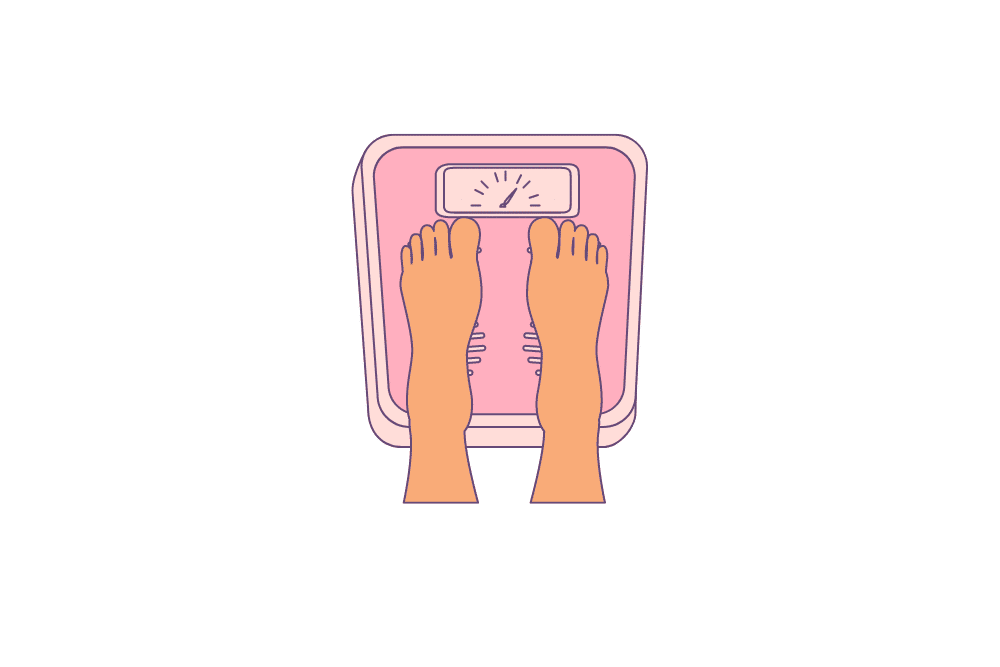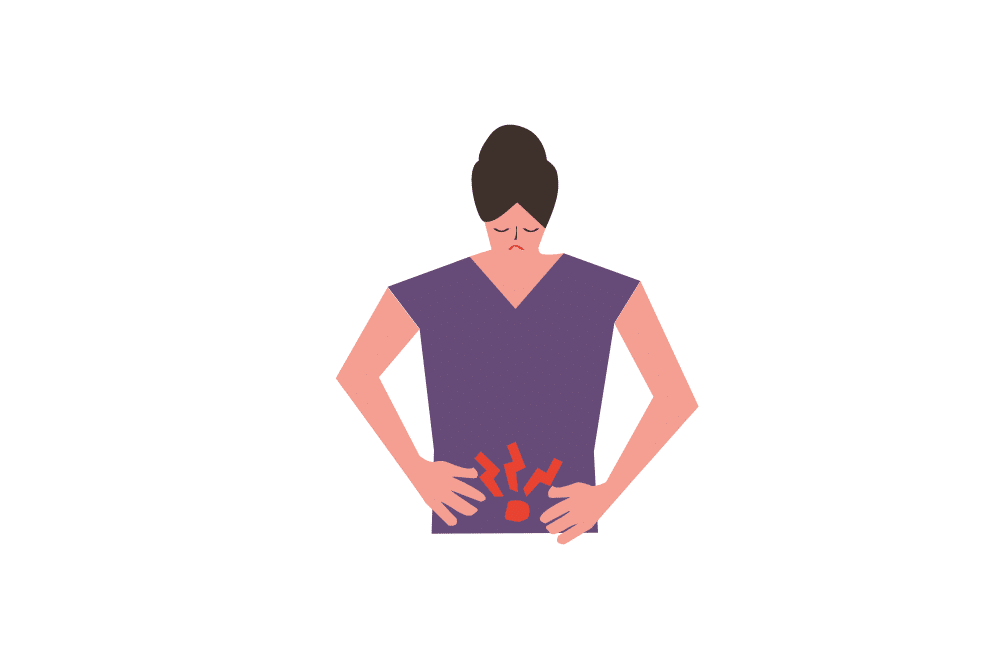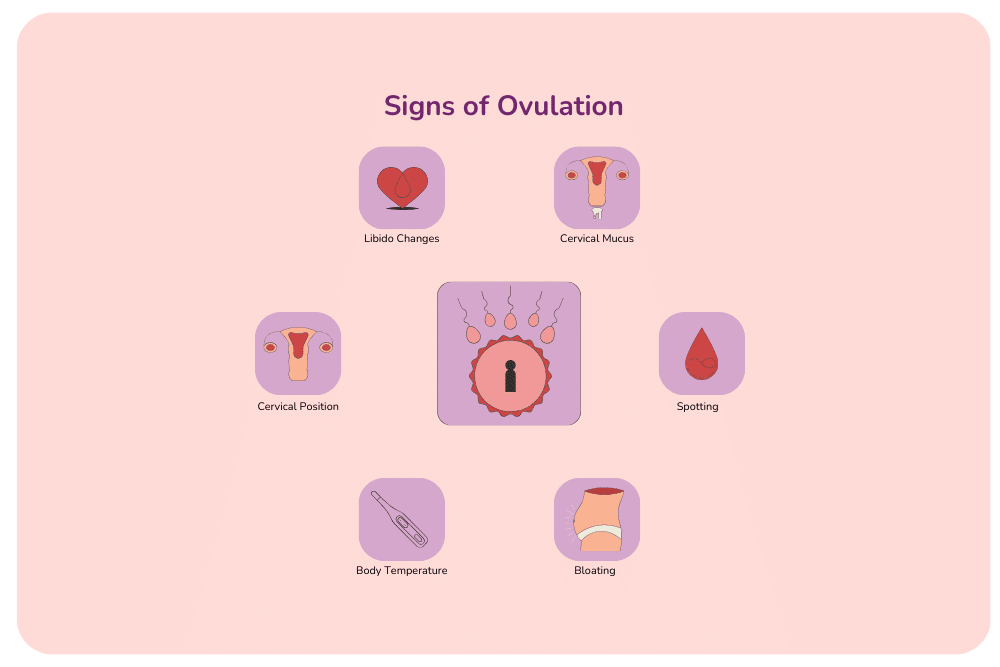Late periods can result from pregnancy, stress, fatigue, excessive weight loss, intense exercise, hormonal disturbances, and coming off the combined oral contraceptive pill. It can also take up to 12 months for periods to normalise after stopping injectable contraceptives. [1]
In this blog, we explore the reasons why you might have a late or missed period, from everyday stress and lifestyle changes to potential health conditions. Let’s delve into the complexities of menstrual cycles and uncover the factors that could be causing late or missed periods.
Why Is My Period Late If I’m Not Pregnant?
Waiting for your period can be nerve-wracking, especially when pregnancy isn’t in the picture. But the female body is complex, and sometimes it likes to throw curveballs. Stress, weight loss, or even that new medication you’re taking could be behind the menstrual delay. It’s like your body’s way of saying, ‘Hey, slow down a bit!’ Remember, you’re not alone, and it’s worth chatting with a healthcare provider if you’re worried. You can always consider taking a pregnancy test for peace of mind.
How Long Is It Normal to Have a Late Period?
The waiting game can feel like an eternity when your period decides to take a detour. Usually, the menstrual cycle has its own rhythm, but every now and then, it goes off-script. It’s normal to have a late period occasionally. If it becomes a regular thing or if you’re feeling off, it might be worth a chat with your doctor. They can offer some insight and put your mind at ease.

Stress and Late Periods
Feeling the pressure lately? Stress not only affects your mood but can also throw your menstrual cycle off track.
Stress is a common factor contributing to late periods. When the body is under stress, it releases cortisol, which can disrupt the normal hormonal balance necessary for regular menstruation. This disruption can lead to irregularities in the menstrual cycle, including late periods [2].
While occasional stress-induced late periods are normal, chronic stress can have a more significant impact on menstrual regularity. Managing stress through techniques such as relaxation exercises, mindfulness, regular exercise, and adequate sleep can help mitigate its effects on the menstrual cycle.
However, if stress-related menstrual irregularities persist or worsen, it’s essential to consult with a healthcare professional. They can evaluate any underlying health issues and provide appropriate guidance and treatment to help restore menstrual regularity.
Weight Fluctuations and Periods
Ever noticed how changes in your weight can impact your menstrual cycle?
Whether you’re losing weight or gaining weight, your body’s balance can sometimes go off kilter. Significant changes in weight, whether due to intentional dieting, excessive exercise, or fluctuations in body fat percentage, can disrupt the hormonal balance necessary for a normal menstrual cycle [3].
Weight fluctuations can affect menstrual regularity. Rapid weight loss or being underweight can lead to irregular or missed periods, while sudden weight gain or obesity can also disrupt the menstrual cycle.
Finding a balance in weight management is essential for promoting menstrual regularity. Maintaining a healthy weight through a balanced diet, regular exercise, and lifestyle modifications can help support hormonal balance and regulate menstrual cycles.

Exercise and Menstrual Regularity
Exercise plays an important role in overall health, but finding the right balance is key to maintaining menstrual regularity. While regular physical activity can support a healthy menstrual cycle by reducing stress and promoting hormone balance, excessive or intense exercise can have the opposite effect, leading to irregular periods or even amenorrhea (absent periods) [4].
It’s important to strike a balance between exercise intensity, duration, and frequency to support menstrual regularity. Incorporating a variety of activities, including cardio, strength training, and flexibility exercises, can help prevent overtraining and minimise the risk of menstrual disturbances.
Listening to your body is essential when it comes to exercise and menstrual health. Pay attention to how your body responds to different types and intensities of exercise, and adjust your routine accordingly. If you experience changes in your menstrual cycle, such as a missed or late period, consider reducing the intensity or duration of your workouts and incorporating rest days into your routine.
Consulting with a healthcare professional or a qualified fitness trainer can also provide personalised guidance on exercise and menstrual health. They can help you tailor your exercise routine to support hormonal balance and promote overall well-being while maintaining menstrual regularity.
Medication Side Effects
Certain medications can have side effects that affect the menstrual cycle. These side effects may include changes in the length of the menstrual cycle, irregular bleeding, or even the absence of periods altogether [5].
It’s important to be aware of the potential impact that medications can have on your cycle. If you’re experiencing changes in your menstrual cycle after starting a new medication, it’s essential to discuss these concerns with your healthcare provider.
They can help determine whether the medication is causing the changes and explore alternative treatment options if necessary. Additionally, they can provide guidance on managing any side effects while ensuring that your overall health and well-being are prioritised. Hormonal birth control, for example, is known to influence menstrual patterns, and your healthcare provider can offer insights into how it may be affecting you.

Hormonal Imbalances: Navigating the Ups and Downs of Your Period
Hormonal imbalances can lead to fluctuations in your menstrual cycle, causing irregularities such as missed periods, heavy bleeding, or shorter cycles. These imbalances can stem from various factors, including stress, diet, lifestyle, or underlying health conditions like polycystic ovary syndrome (PCOS) or thyroid disorders [6].
Navigating hormonal imbalances requires understanding your body’s signals and taking proactive steps to restore balance. This may involve lifestyle changes such as stress management techniques, dietary modifications, or seeking medical treatment to address underlying health issues. By listening to your body and working with healthcare professionals, you can navigate the ups and downs of hormonal imbalances and promote a healthier menstrual cycle.
Understanding PCOS: More Than Just a Late Period
Polycystic ovary syndrome is a common hormonal disorder that affects people with ovaries. It’s characterised by hormonal imbalances, ovarian cysts, and metabolic disturbances. While the exact cause of PCOS is unknown, factors like genetics, insulin resistance, and inflammation may play a role in its development.
PCOS symptoms include irregular periods, excessive hair growth (hirsutism), acne, weight gain, and infertility. Not everyone with PCOS will experience the same symptoms, and they can vary in severity from person to person.
Hormonal imbalances are at the core of PCOS. Elevated levels of androgens (male hormones), such as testosterone, can disrupt ovulation and lead to irregular periods. Additionally, insulin resistance—a common feature of PCOS—can further exacerbate hormonal dysregulation.
PCOS isn’t just about irregular periods—it can have far-reaching health implications. People living with PCOS are at an increased risk of developing conditions such as type 2 diabetes, high blood pressure, heart disease, and endometrial cancer.
While PCOS is a chronic condition that can’t be cured, its symptoms can be managed effectively. Treatment options may include lifestyle modifications such as diet and exercise, medications to regulate menstrual cycles (e.g. the contraceptive pill) and manage symptoms like acne and hair growth, and fertility treatments for those trying to conceive.
Thyroid Troubles and Late Periods
Thyroid disorders, such as hypothyroidism or hyperthyroidism, can disrupt the delicate balance of hormones in the body, leading to menstrual irregularities. Symptoms may include changes in menstrual flow, cycle length, or the absence of periods altogether [7].
Understanding the connection between thyroid health and menstrual irregularities is the key to effective management. If you suspect thyroid issues may be impacting your menstrual cycle, consulting with a healthcare professional for proper diagnosis and treatment is essential. By addressing thyroid troubles, you can work towards restoring balance to your menstrual cycle and overall well-being.

Lifestyle Changes and Late Periods
Your daily habits can wield significant influence over the regularity of your menstrual cycle. From dietary choices to stress management techniques, understanding how your lifestyle impacts your period can empower you to take control of your menstrual health.
The Impact of Diet on Menstrual Health
Did you know that what you eat can have a big impact on your menstrual cycle? It’s true! Eating a balanced diet full of nutrients like iron, calcium, and omega-3 fatty acids can help keep your hormones in check and your periods regular. So next time you’re reaching for a snack, consider choosing something that supports your menstrual health!
Exercise and Its Effects on Menstrual Regularity
While staying active is great for your overall health, it’s important to find the right balance when it comes to exercise and your menstrual cycle. Too much intense exercise can throw off your hormone balance and lead to irregular periods. Remember to listen to your body and give it the rest it needs to keep your cycle happy and healthy.
Stress Management Techniques for Period Peace
Stress can wreak havoc on your menstrual cycle. Taking time to unwind and practise relaxation techniques like meditation or spending time with loved ones can help keep stress levels in check and your periods on track. Remember, self-care isn’t selfish—it’s essential for your well-being!
Sleep Hygiene and Its Role in Menstrual Health
Getting enough sleep is super important for keeping your hormones balanced and your periods regular. Creating a calming bedtime routine and making your sleep environment cosy can help improve sleep quality and support a healthy menstrual cycle. So tuck yourself in and get ready for some sweet dreams—and regular periods!
Finding Balance in Your Lifestyle
Balancing all aspects of your lifestyle—from nutrition and exercise to stress management and sleep—is key to keeping your hormones in harmony and your menstrual cycle regular. Making small, sustainable changes can make a big difference in how you feel and how your cycle behaves.
Sources
Queensland Government. Late period | Menstrual problems [Internet]. 2024 [cited 2024 Jun 16]. Available from: https://www.qld.gov.au/health/condition/womens-health/menstrual-problems/late-period
NHS. Missed or Late Periods [internet]. 2022 [cited 13 September 2024]. Available from: https://www.nhs.uk/conditions/missed-or-late-periods/
Cleveland Clinic. Yes, Weight Loss Can Impact Your Menstrual Cycle [internet]. 2023 [cited 13 September 2024]. Available from: https://health.clevelandclinic.org/can-weight-loss-affect-your-period
Cleveland Clinic. Is It Normal to Lose Your Period Because of Exercise? [internet]. 2021 [cited 13 September 2024]. Available from: https://health.clevelandclinic.org/is-it-normal-to-lose-your-period-because-of-exercise
HealthLinkBC. Medicines That Can Cause Changes in Menstrual Bleeding [internet]. 2023 [cited 13 September 2024]. Available from: https://www.healthlinkbc.ca/health-topics/medicines-can-cause-changes-menstrual-bleeding
Mayo Clinic Polycystic ovary syndrome (PCOS)[internet]. 2022 [cited 13 September 2024]. Available from: https://www.mayoclinic.org/diseases-conditions/pcos/symptoms-causes/syc-20353439
Johns Hopkins Medicine. Amenorrhea [internet]. 2024 [cited 13 September 2024]. Available from: https://www.hopkinsmedicine.org/health/conditions-and-diseases/amenorrhea




